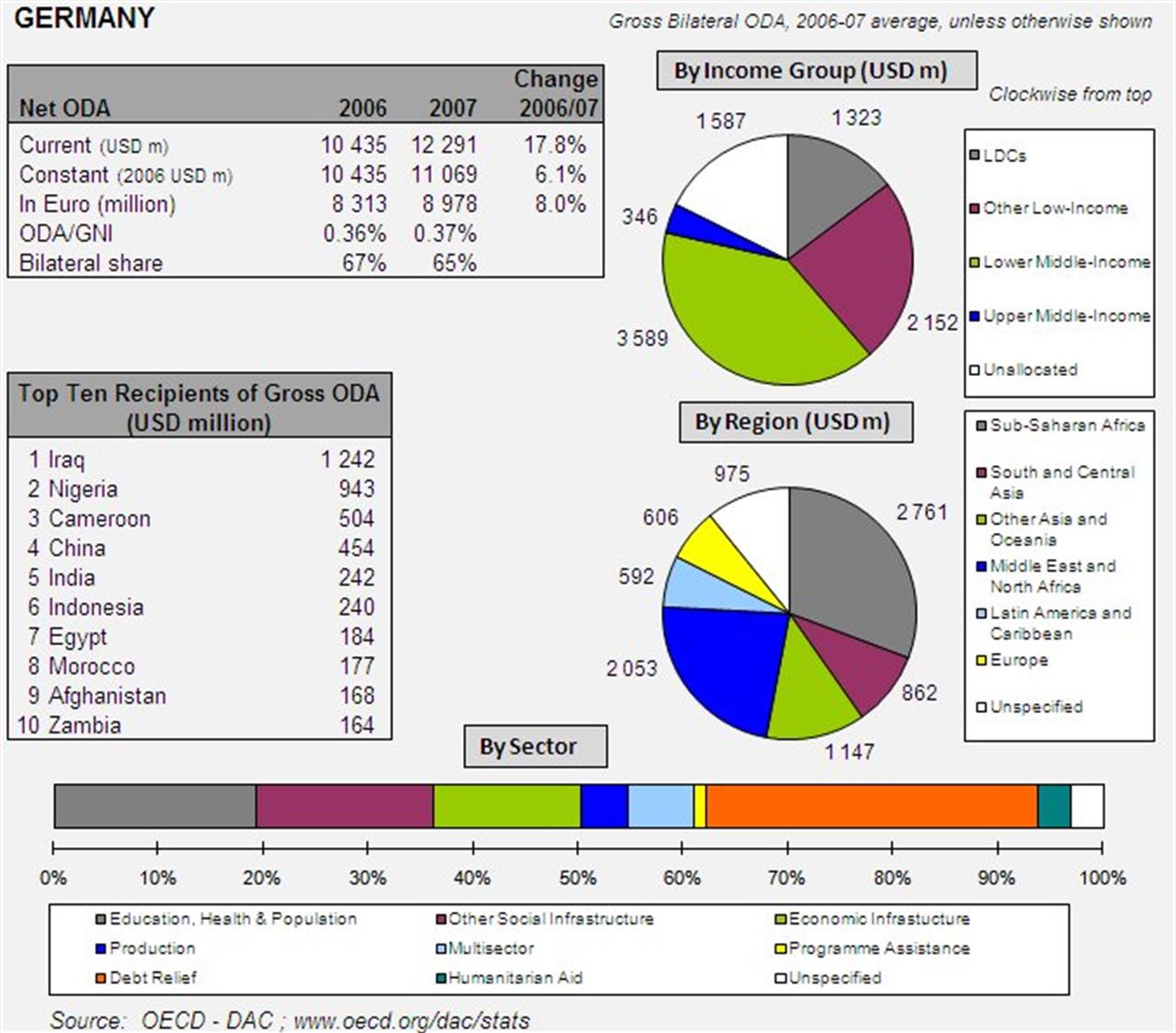The Organization for Economic Co-operation and Development (OECD) published data valid for 2008 that show that the Net Official Development Assistance (ODA) in Germany amounts to 13,910 million $ (almost 11,000 million €), that is: 0.38% of the GNI, whereas in 2007 the same figure was 0.37%, against approximately 0.47% in 1982 and 1983 and the 0.26% circa of 1998 and 1999 (sources: OECD, 30th March 2009; BMZ / Division 304 – Statistics, 2008).
Yet, the average effort for all the DAC countries (Development Assistance Committee countries) is higher than the German one: 0.47% of GNI, with Sweden and Luxembourg leading the way, respectively with 0.98% and 0.92% of GNI destined to ODA. Japan and the United States have the lowest ratio ODA/GNI: 0.18%, whereas, in Europe, Greece and Italy deliver just a 0.20% of the GNI to the Official Development Assistance (Sources: OECD, 30th March 2009).
Germany is therefore the first country in Europe as far as the volume of the net ODA is concerned; it is instead only 14th considering the ratio ODA/GNI (source: OECD, 30th March 2009).
Considering gross bilateral ODA, according to the OECD – DAC (see figure) the country that receives the most from Germany is Iraq, with 1,242 million $ (less than 1,000 million €), followed by the African countries Nigeria and Cameroon (respectively with 943 million and 504 million $, circa 730 million and less than 400 million €), and China in the fourth place with 454 million $, equivalent to approx. 350 million € (source: OECD – DAC, 2006-07 average; www.oecd.org/dac/stats).
The main destinations of ODA are debt relief, which accounts for more than 30%, and the education, health and population sector (almost 20%), as shown in the figure.
Nessuno ti regala niente, noi sì
Hai letto questo articolo liberamente, senza essere bloccato dopo le prime righe. Ti è piaciuto? L’hai trovato interessante e utile? Gli articoli online di VITA sono in larga parte accessibili gratuitamente. Ci teniamo sia così per sempre, perché l’informazione è un diritto di tutti. E possiamo farlo grazie al supporto di chi si abbona.

